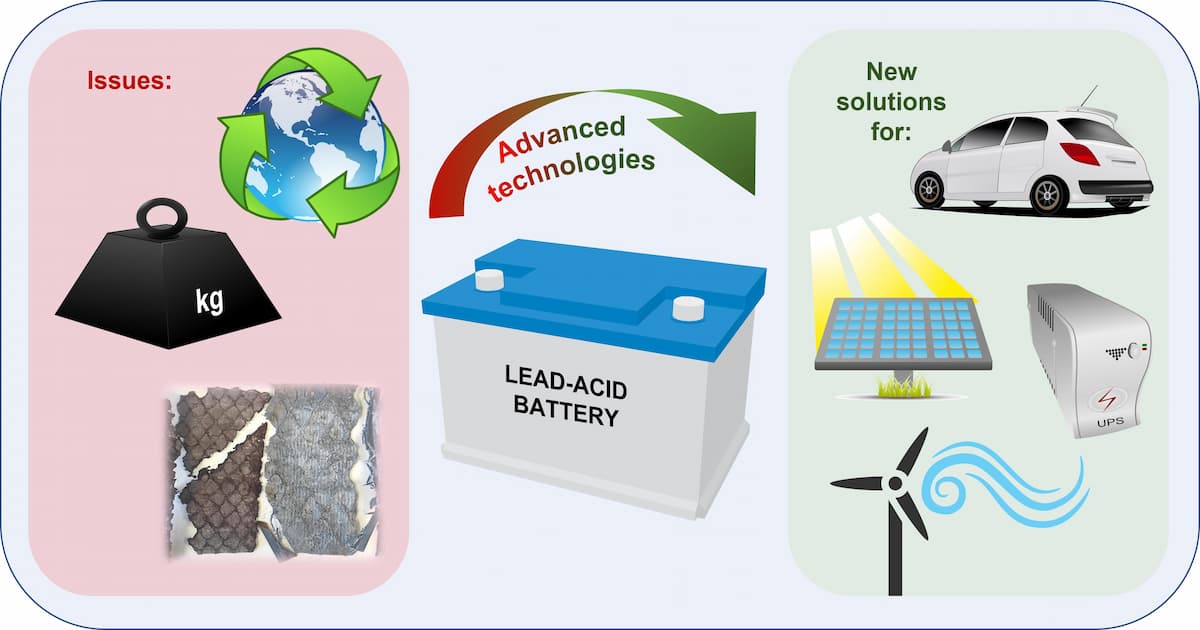Lead Acid Batteries
A special issue of Batteries (ISSN 2313-0105). This special issue belongs to the section "Battery Materials and Interfaces: Anode, Cathode, Separators and Electrolytes or Others".
Deadline for manuscript submissions: 20 August 2024 | Viewed by 178

Special Issue Editors
Interests: electrochemistry; corrosion; coatings; electrode materials for electrochemical current sources
Interests: catalysis; electrochemistry; photochemistry; synthesis and investigation of photo- and electro-catalytically active materials; electrochemical energy storage
2. Department of Physical and Inorganic Chemistry, Faculty of Chemical Technology, Kaunas University of Technology, 50254 Kaunas, Lithuania
Interests: catalysis; electrochemistry; electrodeposition; electrochemical capacitors
Special Issue Information
Dear Colleagues,
Lead-acid batteries (LAB) are one of the oldest and are still widely used as power sources for energy storage nowadays. They are commonly used in various transportation means (until recently, mainly with petroleum/diesel-powered engines) and small and large, grid-scale power storage applications. The LAB technology is inexpensive but has shortcomings - low energy density and heavy weight. Recent technological innovations have increased battery life and broader applications, including hybrid electric vehicles.
We invite you to contribute an original research paper or a review to the Special Issue of batteries, “Lead Acid Batteries”. This Special Issue focuses on LAB technology advancements and innovative solutions.
We encourage you to submit your papers concerning, but not limited to, these topics of interest:
- Innovation in LAB technology
- Carbon and other additives for LAB electrode materials
- The design of LAB electrodes/cells/batteries
- Sulfation, corrosion, and other aging issues of LAB electrode materials
- Acceptance/return of charge in LAB
- Modeling and simulation of processes in LAB
- Recycling technologies of LAB
Dr. Egidijus Griškonis
Prof. Dr. Eugenijus Valatka
Dr. Ieva Barauskienė
Guest Editors
Manuscript Submission Information
Manuscripts should be submitted online at www.mdpi.com by registering and logging in to this website. Once you are registered, click here to go to the submission form. Manuscripts can be submitted until the deadline. All submissions that pass pre-check are peer-reviewed. Accepted papers will be published continuously in the journal (as soon as accepted) and will be listed together on the special issue website. Research articles, review articles as well as short communications are invited. For planned papers, a title and short abstract (about 100 words) can be sent to the Editorial Office for announcement on this website.
Submitted manuscripts should not have been published previously, nor be under consideration for publication elsewhere (except conference proceedings papers). All manuscripts are thoroughly refereed through a single-blind peer-review process. A guide for authors and other relevant information for submission of manuscripts is available on the Instructions for Authors page. Batteries is an international peer-reviewed open access monthly journal published by MDPI.
Please visit the Instructions for Authors page before submitting a manuscript. The Article Processing Charge (APC) for publication in this open access journal is 2700 CHF (Swiss Francs). Submitted papers should be well formatted and use good English. Authors may use MDPI's English editing service prior to publication or during author revisions.
Keywords
- lead-acid battery(-ies)
- carbon additive
- electrode mass additive
- electrode material
- design of electrode
- sulfation
- lead corrosion
- state of charge







